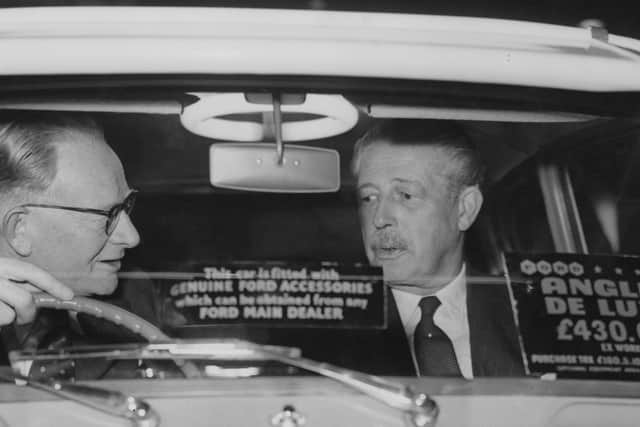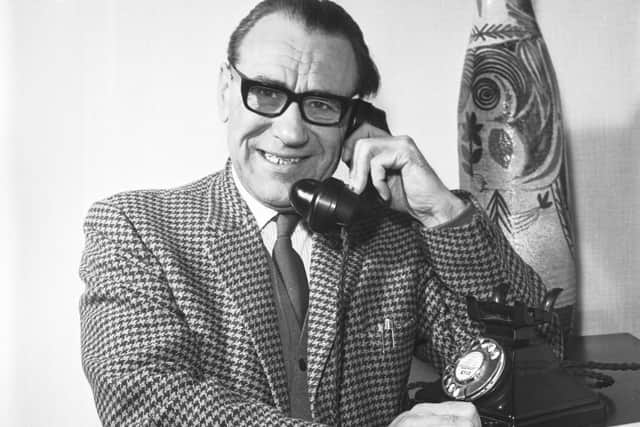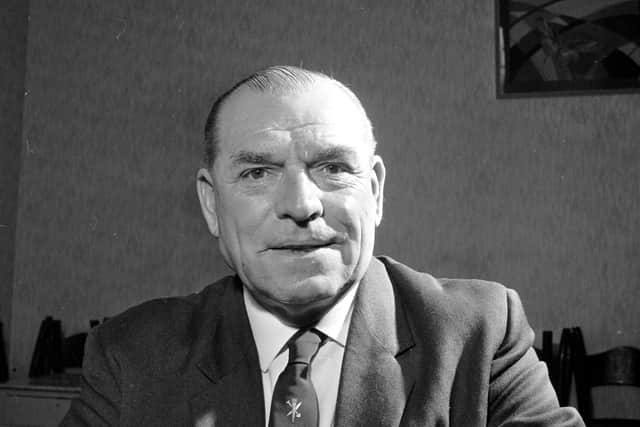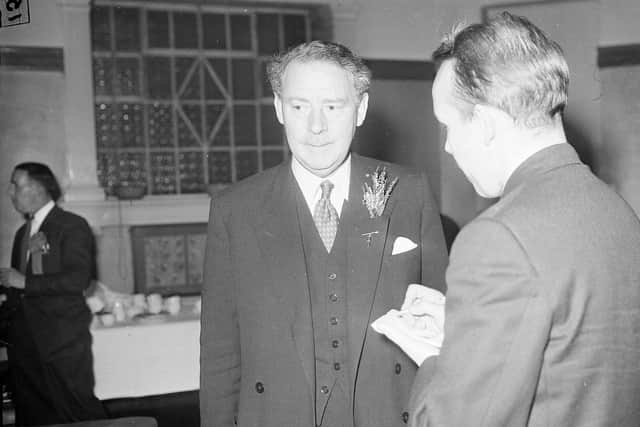Europe was on general election agenda in Edinburgh 60 years ago


The world in October 1959 was very different from today - but even 60 years ago, Europe was one of the issues in the general election held that month.
The Common Market, forerunner of the European Union, had been formed two years earlier but Britain had chosen not to join. Instead, the UK was one of “the Outer Seven” - countries trying to negotiate a separate arrangement, which became the European Free Trade Area (Efta).
Advertisement
Hide AdAdvertisement
Hide AdBut during the election campaign Labour politicians and trade union warned the paper-making industry - which then employed 17,000 across Scotland, many of them in the Lothians - was under threat from the proposals which would allow low-priced imports of paper from Sweden.


Bailie James Hill of Musselburgh, Labour candidate for Midlothian, claimed the paper industry would be dead in ten years unless the Government changed its policy.
And the Evening News reported James Bolton, secretary of Midlothian Trades Council, warning that 5000 people in Midlothian alone would lose their jobs. “In Penicuik,” he said, “80 per cent of the employable population are working in the paper mills. If this agreement comes into being it is going to affect the whole town.
”Papermaking also employed workers elsewhere in Lothian, he added - 500 in Musselburgh, 250 in Bonnyrigg, 250 in Linlithgow and 400 in Bath gate.
Advertisement
Hide AdAdvertisement
Hide AdBut the Unionist candidate in Midlothian, William How - campaign slogan “Vote How Now” - accused Labour of scaremongering and claimed the agreement meant Scottish mills could buy raw materials at the same price as Scandinavian mills.


Meanwhile, in Edinburgh West the Liberal candidate Donald Leach had a more positive view of the UK’s future in Europe - and beyond.
”Liberals want to see Britain join the European Common Market,” he said. “And we believe it should also be possible to loosely associate the Commonwealth with this great movement. A space programme undertaken by the united resources of Europe and the Commonwealth is a real possibility and should not make undue calls on the resources of any one country.”
Labour promised a pension increase
Prime Minister Harold Macmillan - who had replaced fellow Tory Anthony Eden in Number Ten two years earlier in the wake of the Suez crisis - called the election on the back of profile-boosting meetings with foreign leaders and personal approval rating of 67 per cent. The Tories’ slogan was “life’s better with the Conservatives - don’t let Labour ruin it”.
Advertisement
Hide AdAdvertisement
Hide Ad

Labour, led by Hugh Gaitskell, made a series of promises, including a ten-shilling increase in the basic pension.
In Edinburgh East, the Unionist candidate, the Earl of Dalkeith, dismissed the promise as “a bribe”.
But Labour’s George Willis, who had been MP for the seat since 1954, told a meeting at Lismore School, Bingham: “We are told that this country ‘has ‘never had it so good’. All right then, why do the Tories say in the same breath we cannot afford to give a pension increase? Surely if prosperity has arrived in this country the old folks should share in the benefit.”
In Edinburgh Central, Labour MP Tom Oswald, a former tram driver, who represented the seat from 1951 until he stepped down in 1974 to be replaced by Robin Cook, attacked the Tories for ending food subsidies and “introducing taxes on household goods which were not even taxed during war years”.
Advertisement
Hide AdAdvertisement
Hide Ad

Labour's John P Mackintosh, famous as a strong advocate of devolution, stood in Edinburgh Pentlands against Tory Lord John Hope, a junior Scottish Office minister who was married to the only daughter of novelist Somerset Maugham.
And he spoke of the way European countries were transforming their cities and in particular their railway stations and said Britain was too slow to follow suit. “When I think of hell I think of Queen Street Station, Glasgow.”
In Leith, the Liberals fielded a former Lord Provost Sir Andrew Murray who argued that neither Conservative government nor having a Labour MP had done the port much good. “In the past 20 years or less Leith has sunk back to a place that is derelict and desolate,” he declared. When Leith was prosperous it had employed 1500 dockers but that had dropped to nearer 200.
Labour’s James Hoy, who held the seat from 1945 until 1970, told a meeting at Wardie School that between 1931 and 1951 Leith’s population had fallen from 82,000 to 62,000 and he urged more housing and new light industries to combat the “mass exodus”.
Advertisement
Hide AdAdvertisement
Hide AdHe said Leith had the worst slum problem in the city and voiced “extreme disappointment” that Edinburgh Corporation had failed to start building new homes on the Leith Fort site, which he said could easily accommodate 300-400 dwellings.
Candidate took time off to go shooting with PM
THE Tories offered Scots more chance to control their own affairs than Labour, the 1959 Tory candidate in Edinburgh North claimed.
Lord Advocate William Milligan argued the Conservatives had moved responsibilities to the Scottish Office while Labour's nationalisation policy would mean more centralisation and control from London.
In Edinburgh South, the Liberal candidate challenging Unionist MP Michael Hutchison was William Douglas-Home, a playwright and brother of future Tory Prime Minister Alec Douglas-Home. One of his plays was on at the Lyceum during the campaign. And he reportedly took an afternoon off to go shooting with his brother.
Advertisement
Hide AdAdvertisement
Hide AdLabour candidate Alex Reid, a 37-year-old postman, who had waited six years for a council house with his wife and child, quipped about his rivals: "They've both been to Eton, but there's many a time I've not eaten".
Labour leader Hugh Gaitksell visited Edinburgh to speak a large afternoon meeting in the Usher Hall ten days before polling day, wearing a sprig of white heather in his lapel.
And future Chancellor Iain Macleod, then a rising Cabinet star, addressed outdoor rallies at Bruntsfield Links and in Musselburgh.
The polls had narrowed during the campaign and one survey showed the initial Tory lead almost disappearing by the end.
Advertisement
Hide AdAdvertisement
Hide AdBut when the results came through, the Tories had increased their Commons majority, though the party had not as well in Scotland or the north of England.
On election day, October 8, the Evening News reported: "A heavy mist blanketed Edinburgh when the polling stations opened, but the weather proved no deterrent. Later in the day the sun broke through and temperatures rose."
There were queues outside many polling stations. At the Inch Secondary School, 700 voters were recorded in the first 90 minutes.
Turnout across the Capital was 78 per cent.
Edinburgh's votes were counted at the Corn Market, Gorgie, but none of the seats changed hands. The closest result was in Edinburgh East where Labour's George Willis scraped home by 312 votes after a recount.
But perhaps the biggest loser was joiner Jim Stocks, Labour candidate in Edinburgh West, who returned to work the next day to find he had been paid off.
